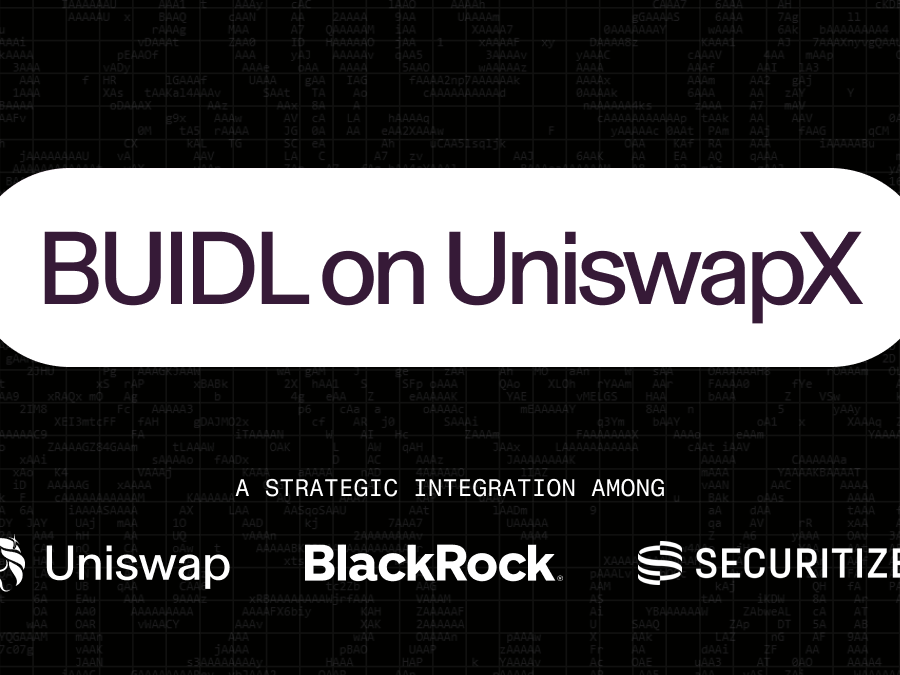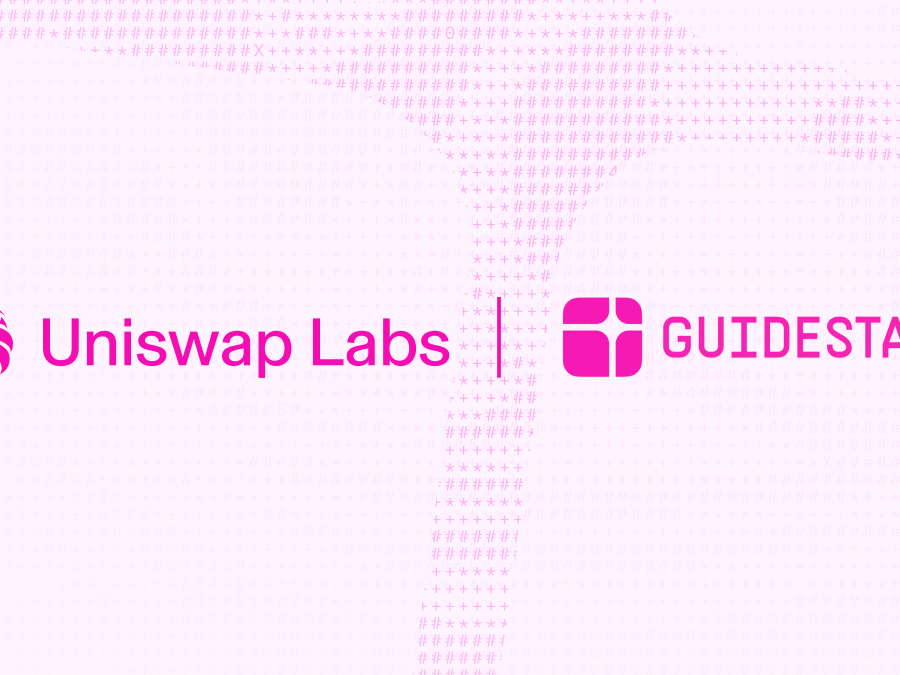Today Uniswap Labs received a Wells notice from the Enforcement Division of the U.S. Securities and Exchange Commission (SEC), notifying us that they are planning to recommend a legal action against us. In the meantime, our entire suite of current products will continue to be available, and we will continue to ship new products. Taking into account the SEC's ongoing lawsuits against Coinbase and others as well as their complete unwillingness to provide clarity or a path to registration to those operating lawfully within the U.S., we can only conclude that this is the latest political effort to target even the best actors building technology on blockchains.
Despite SEC rhetoric that "most" tokens are securities, the reality is that tokens are a digital file format, like a pdf or spreadsheet, and can store many kinds of value. They are not intrinsically securities, just as every sheet of paper is not a stock certificate. The overwhelming volume of traded tokens are definitively not securities – they are stablecoins, community and utility tokens, and commodities like Ethereum and Bitcoin. And tokens traded on secondary markets like Uniswap are not investment contracts. In the circumstance where a token may represent a security, the SEC has refused to create a path for businesses to register.
We are confident that the products we offer are not just legal – they are transformative. They empower people across the world by enabling transparent, verifiable markets with fewer gatekeepers, which allows for cheap, accessible, global economic participation.
Who we are
Uniswap Labs is a U.S.-based software company headquartered in New York City. Our founder and CEO, Hayden Adams, invented the Uniswap Protocol as an experiment to build software that embodied the benefits of the decentralized Ethereum blockchain. Those benefits include core features that cannot be altered, access that cannot be restricted, and no single or centralized points of control.
The Uniswap Protocol unlocked unprecedented innovation in market structure. Transparent execution. Shared infrastructure based on open source code instead of walled gardens. Holding your assets yourself, instead of entrusting them to an institution that might mismanage them. Direct, fully automated transactions without (generally monopolistic) middlemen. And, through the Uniswap Protocol's automated market maker, the ability for anyone to create a market for assets with otherwise limited liquidity that could not exist within legacy structures or traditional intermediaries.
Six years ago, a functional automated market maker had been theorized but did not exist. Now, the Uniswap Protocol has widespread adoption in the crypto space and serves as essential infrastructure for blockchain markets. It is the largest use case of Ethereum, using 25% of Ethereum's blockspace. It has processed $2 trillion in transactions without a hack. It is integrated into thousands of applications built by teams around the world and is the most copied open-source smart contract protocol, replicated over 2,000 times.
Uniswap Labs has created popular consumer platforms for transactions that are entirely on blockchains. Our mobile app lets users custody their own assets, like a personal safety deposit box on a blockchain that only the owner can access. Our website lets users safely buy and sell tokens.
We do this work because we believe blockchains can offer consumers more choice and control over what they own, in the United States and around the world. We think that this is worth fighting for.
If the SEC protects opaque systems and attacks new, transparent technology that can open up opportunity and reduce costs for Americans, the U.S. will fall behind on innovation that can power consumer choice and freedom. We’re disappointed that we may have to fight a U.S. government agency to protect innovation and economic freedom.
The Law is Clear
Regardless of what the SEC decides to do, the law is clear on these points:
-
No authority from Congress: The Securities and Exchange Commission only has jurisdiction over securities, such as assets legally classified as "investment contracts." The court decision in SEC v. Ripple makes clear that secondary market transactions in digital assets generally do not constitute investment contracts. These are exactly the assets overwhelmingly traded on the Uniswap Protocol. The SEC Chair even acknowledged in Congressional testimony that new regulation of tokens would require Congress to pass a new law – that the SEC lacked the authority. Our own decisive legal victory in Risley v. Uniswap Labs, underscored the need for Congress, not the SEC, to set crypto regulation – finding that the private plaintiffs' securities law "concerns are better addressed to Congress." And, the SEC's recent decision to settle with Shapeshift only on their dealer issue – while fully ignoring the fact that they are also a DEX – clearly shows a pattern of arbitrary enforcement that is only possible when an agency's actions are untethered from the bounds of specific laws.
-
No securities exchange or broker claim: Even if the Ripple decision and the Supreme Court’s Howey test did not foreclose the SEC’s arguments, the Uniswap Protocol, web app, and wallet would still not meet the legal definitions of securities exchange or broker. This was made obvious in the recent SEC vs Coinbase, Inc. ruling, where the court, at the earliest stage of the case, already threw out the SEC’s claim that crypto wallets were brokers, even if they take fees. Even the SEC seems to know their existing legal definitions do not capture self-custodial on-chain decisions, which is why the agency proposed new exchange rules last year to try to capture this activity. Those rules are not yet in place, and we have explained why those rules would be struck down even if adopted.
-
No securities offering: The UNI token is not a security because it does not meet the legal definition of any type of security, including not meeting the definition of an "investment contract." Under U.S. law and the established Howey test, an investment contract is an investment of money, in a common enterprise, with the expectation of profits, dependent solely on the efforts of others. There is no contract or promise between Uniswap Labs and the token's 300,000+ holders. There is no common enterprise and the value of the token is not dependent solely on Uniswap Labs' efforts. Despite the SEC's most recent power grab to investigate the Ethereum Foundation, the Commodity Futures Trading Commission has been very clear that both Bitcoin and Ethereum are not securities. And the Uniswap technology ecosystem is sufficiently decentralized, much like Bitcoin and Ethereum.
We are confident that our products are on the right side of the law, and that our work is on the right side of history. While our legal team takes on this fight, we'll continue to do what we do best: build.



